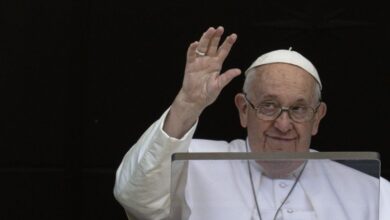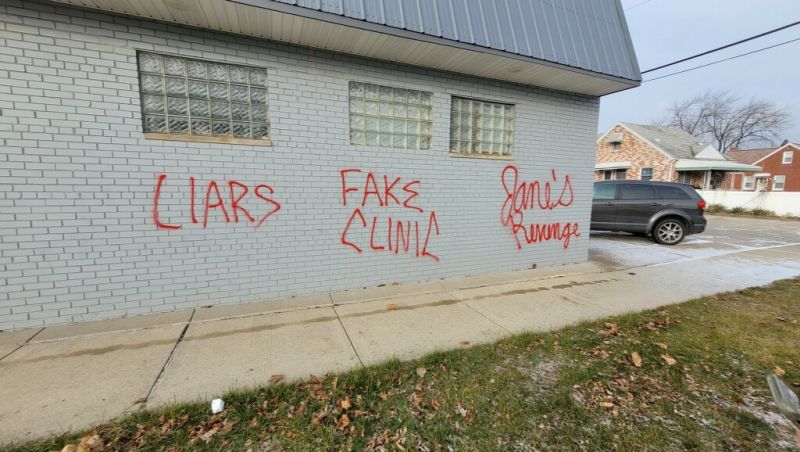Thousands gather at the Jordan River with patriarch to mark the baptism of Jesus
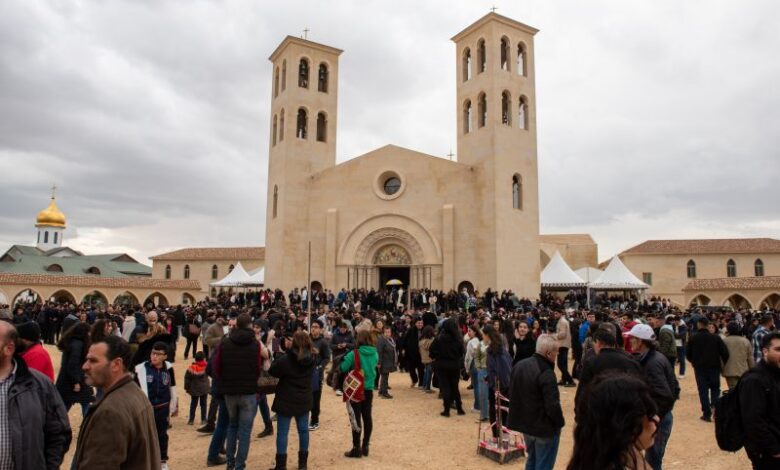
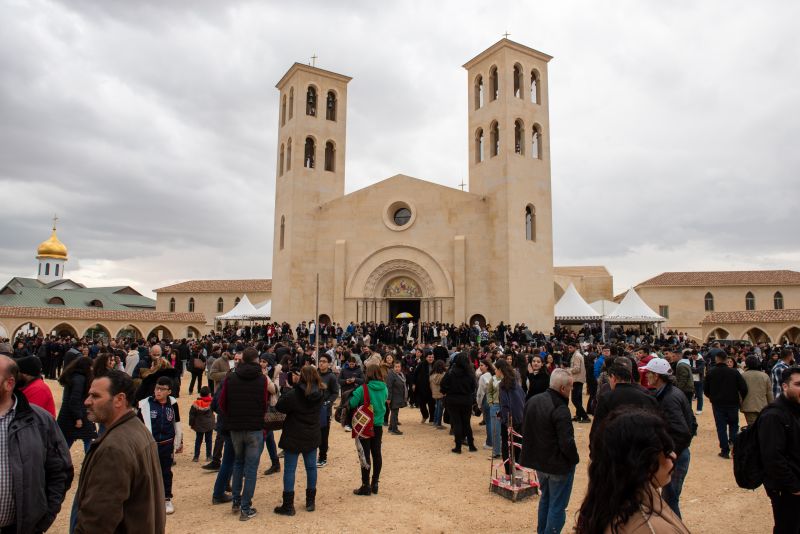 Worshipers in front of the Latin church dedicated to the Baptism of Jesus, in the locality known as "Bethany beyond the Jordan," at the exit of the Mass of the Feast of Baptism, on Friday, Jan. 12, 2024. / Credit: Marinella Bandini
Worshipers in front of the Latin church dedicated to the Baptism of Jesus, in the locality known as "Bethany beyond the Jordan," at the exit of the Mass of the Feast of Baptism, on Friday, Jan. 12, 2024. / Credit: Marinella Bandini Amman, Jordan, Jan 13, 2024 / 15:00 pm (CNA).
For two thousand years, since Jesus descended into the waters of the Jordan River to be baptized by John the Baptist, the river has been a pilgrimage site for Christians from around the world. And on the banks of that river, for the past 24 years, on the second Friday of January, the Catholic community in the region has undertaken a pilgrimage, gathering around its patriarch, to celebrate the baptism of Jesus.
This past Friday, Jan. 12, thousands of faithful gathered once more for the feast day. The pilgrimage has become one of the main events for the Jordanian Church, with St. John the Baptist as its patron.
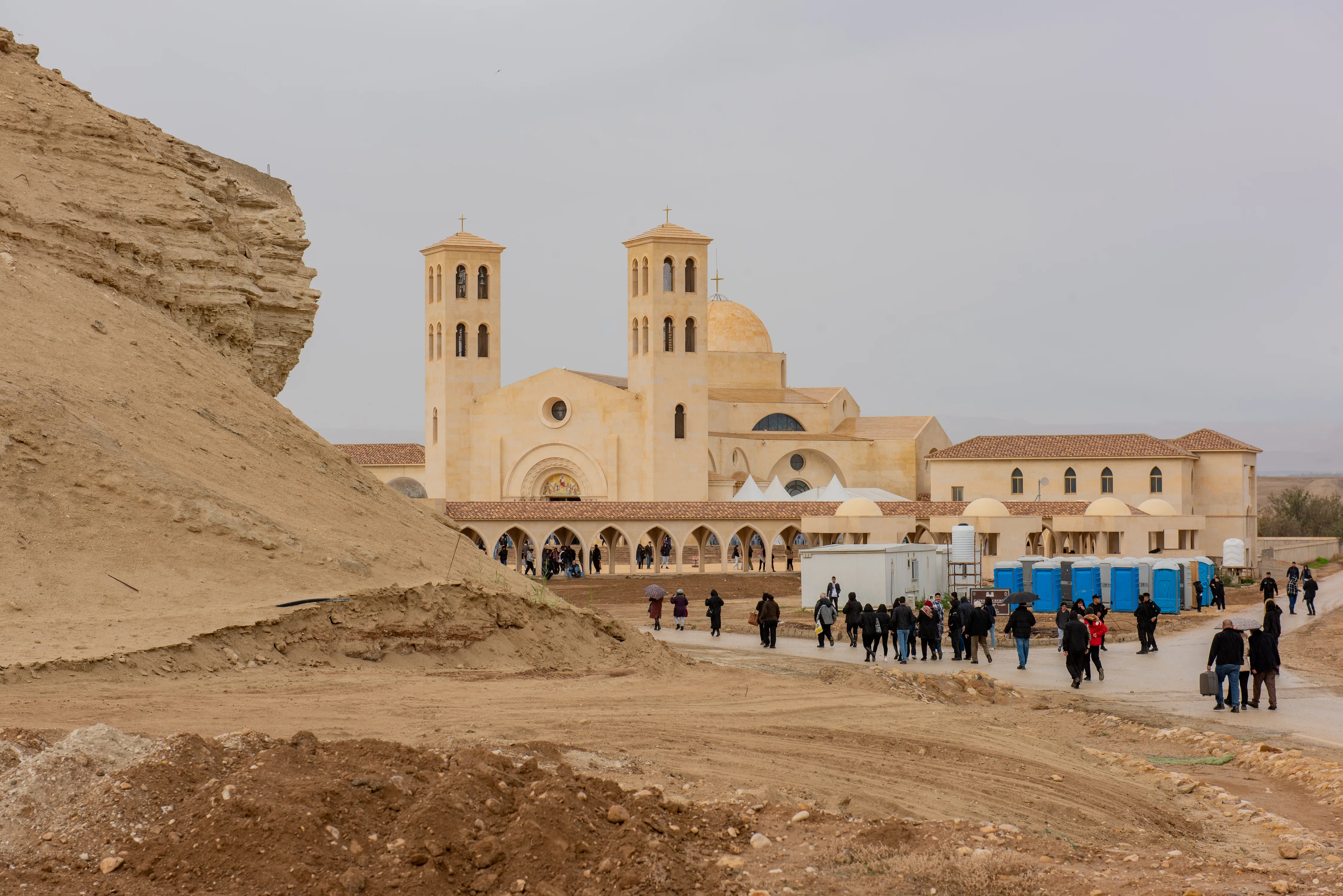
The location for the event each year is known as “Bethany beyond the Jordan;” in the local language it’s called Al-Maghtas, which means “immersion.” Situated on the eastern bank of the River Jordan, nine kilometers north of the Dead Sea, the site consists of two distinct archeological areas: Tell Al-Kharrar, also known as Jabal Mar-Elias (Elijah’s Hill), from where the prophet ascended into heaven, and the area of the churches of St. John the Baptist near the river. The site is believed to be the location where Jesus was baptized.
The area has been designated as a national park to preserve the site and make it a significant pilgrimage destination. The park is administered by the Baptism Site Commission, an independent foundation chaired by Prince Ghazi bin Muhammad, a member of the royal house and advisor to King Abdullah II for cultural and religious affairs.
At the initiative of the Commission, Christian churches of various denominations have each been allocated land to construct religious buildings, at a short distance from the river. The Latin Church is located a couple of kilometers from the identified site of the baptism of Jesus and has its own access to the Jordan River.
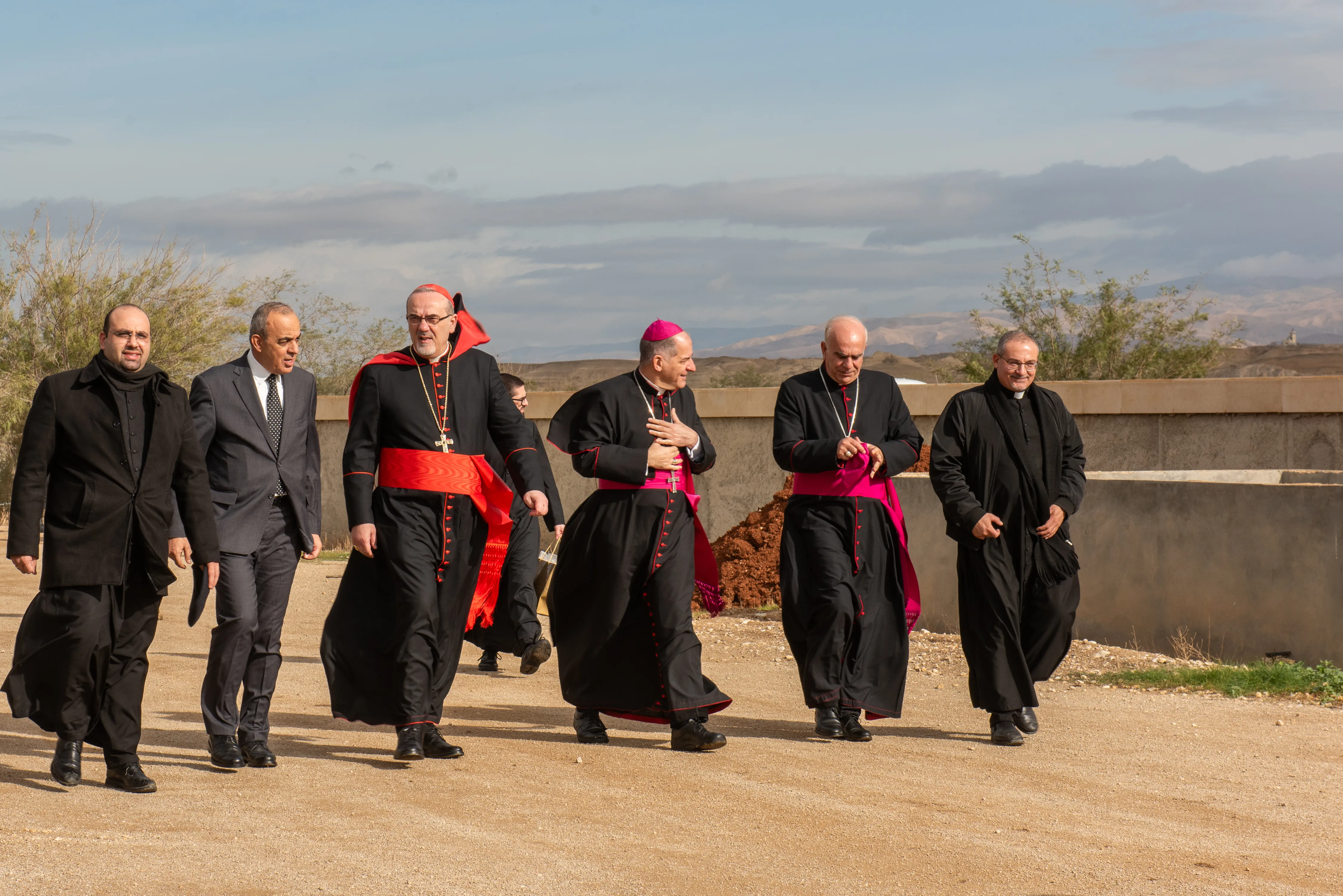
Speaking to the press before the Mass, the Latin Patriarch of Jerusalem, Cardinal Pierbattista Pizzaballa, reiterated the call “for an immediate ceasefire and end of resorting to weapons, killing, displacement, and demolition of homes” in Gaza. He expressed gratitude to the royal family in Jordan, the government, and the armed forces “that continuously provide humanitarian aid.” He also expressed gratitude to the Jordanian Hospital and the Hashemite Charitable Organization for their support and assistance as it was through these institutions that the Christians of the Holy Family parish in northern Gaza received humanitarian aid on Christmas Eve.
Dr. Imad Hijazin, Secretary-General of the Ministry of Tourism and Antiquities, also spoke, emphasizing the strategic importance of the site for Jordanian tourism. Hijazin had just returned from a visit to the Vatican where a Jordanian delegation met with officials from various dicasteries, including Cardinal Pietro Parolin, the Secretary of State. The purpose was to boost Christian pilgrimages in Jordan, particularly at this site, recognized as a UNESCO heritage site since 2015. The patriarch also joined in this appeal. “Jordan is holy land. I reiterate my invitation to pilgrims from all parts of the world to visit Jordan,” he said.
Before presiding at the Mass, Pizzaballa, collected water from the Jordan River in a vessel. The water was blessed during the Mass and then sprinkled on the faithful as an act of renewal of their baptismal vows on the occasion of this feast.
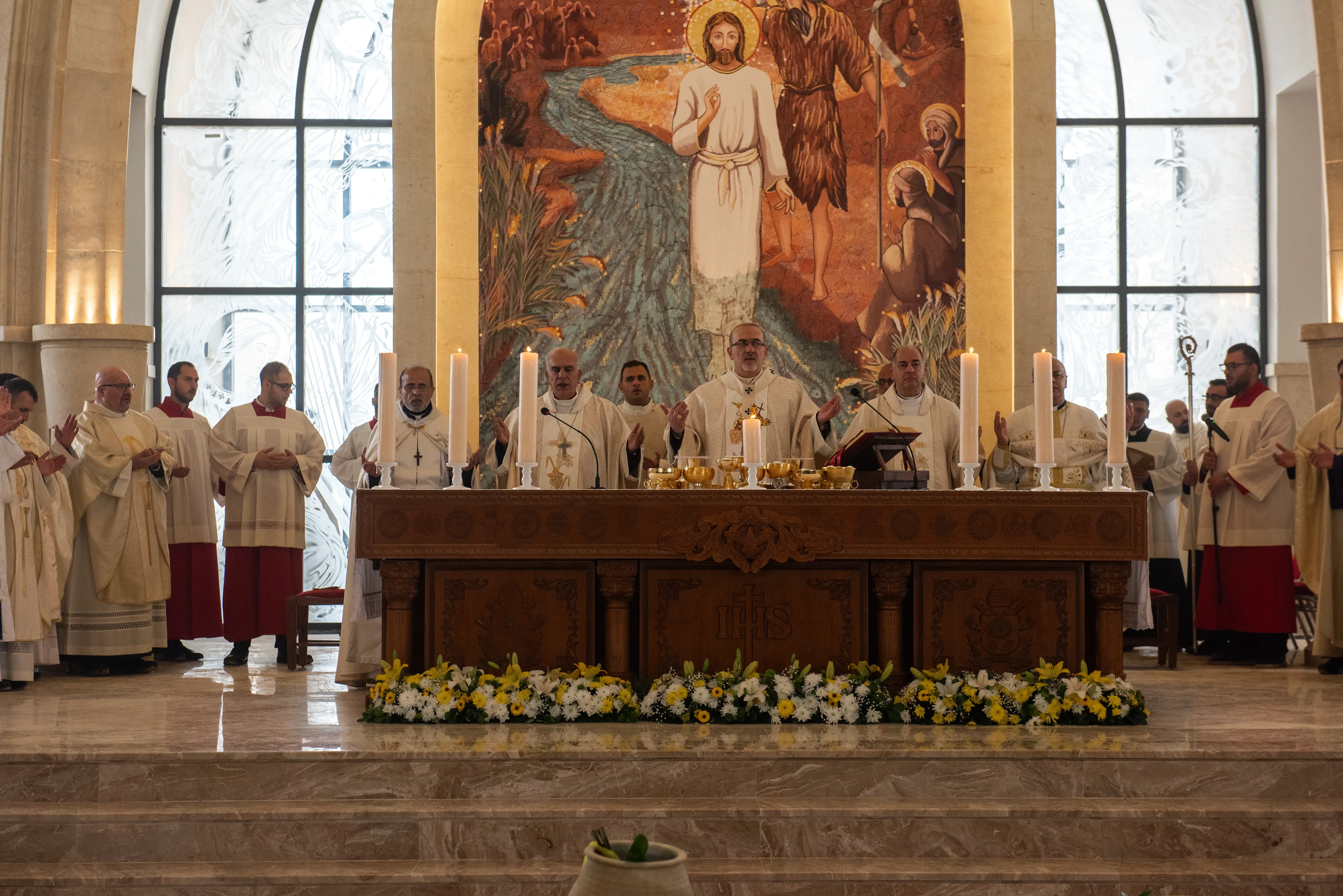
Concelebrating the Mass were Monsignor Jamal Daibes, Patriarchal Vicar in Jordan (who was the following day appointed as the new bishop of Djibouti), and Monsignor Giovanni Pietro Dal Toso, Apostolic Nuncio to the Hashemite Kingdom of Jordan, along with several bishops and priests.
In his homily, Daibes spoke about the holiness of this place, which was sanctified by Jesus Christ’s baptism, “God chose this place to complete the history of salvation for humanity, so we hold this place dear to our hearts. Let our belonging to the land of baptism be a message of peace and love to the whole world, following the example of Jesus Christ,” he said.
The celebration took place in the large Latin church dedicated to the Baptism of Jesus, just a few meters from the east bank of the Jordan.
Construction of the church began 15 years ago, with the laying of the foundation stone blessed by Pope Benedict XVI, when he came as a pilgrim to the Holy Land. The hope is to complete the construction by 2025, the jubilee year of the Universal Church and the 25th anniversary of this pilgrimage of Catholic faithful to the Jordan River.
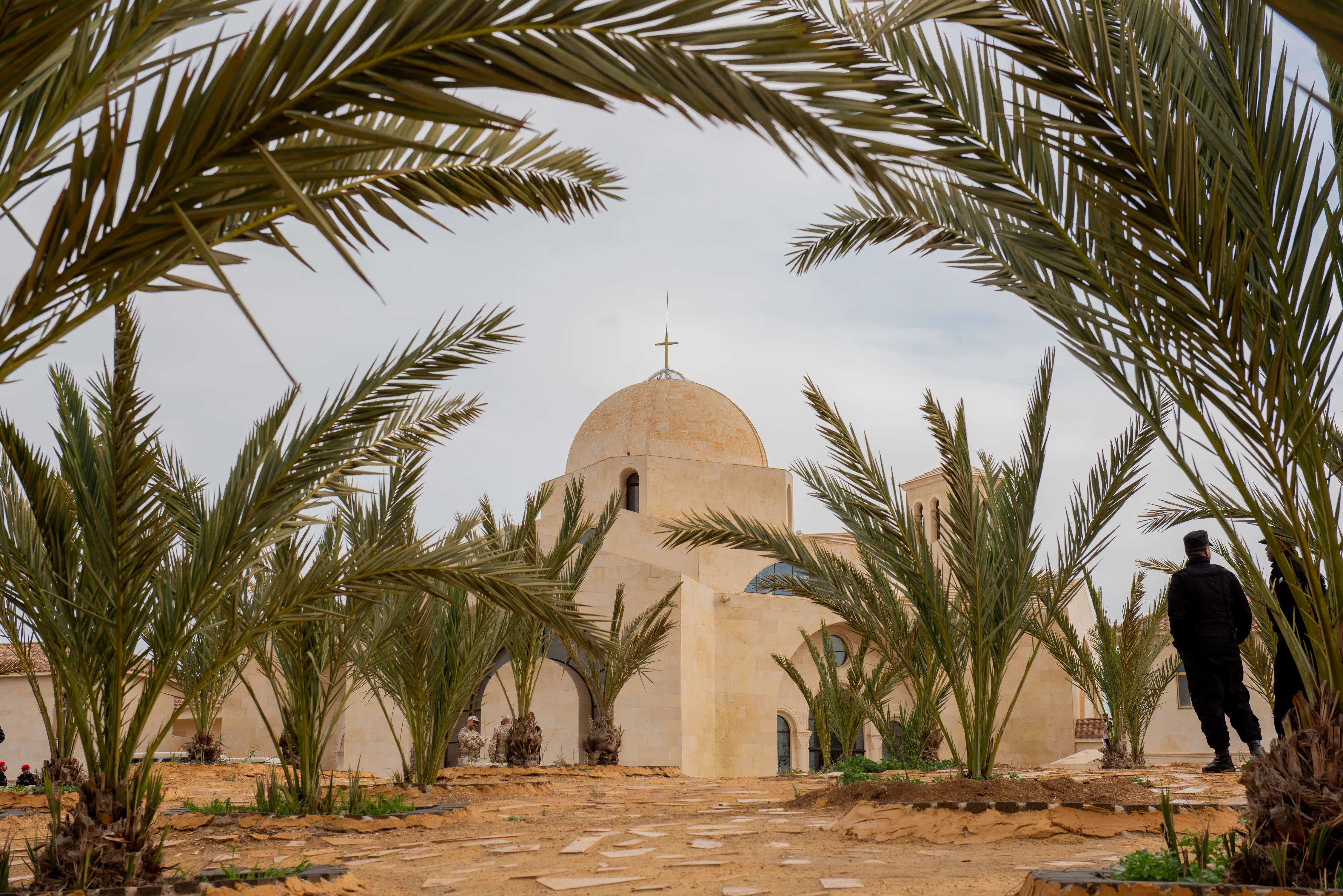
The Latin church can accommodate thousands of worshippers, both indoors and outdoors. On either side of the church, two monasteries have been built, reserved for two monastic communities — one male and one female — belonging to the congregation of the Incarnate Word. Each monastery is equipped to host small groups of pilgrims in retreat. Near the church, a pilgrim hospitality center with various facilities is also planned. (A look at what the finished site will look like can be viewed here.)


